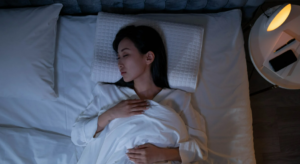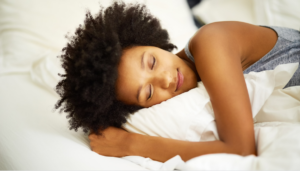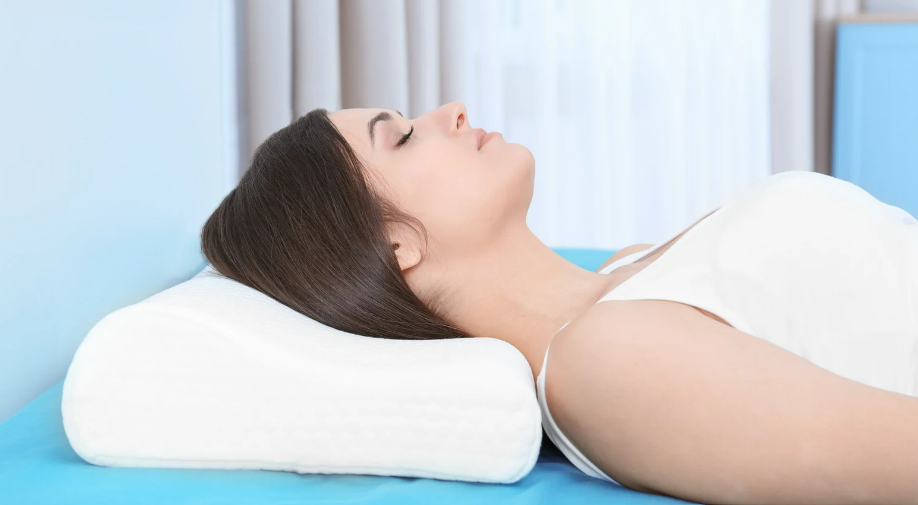Have you ever wondered if the way you sleep could impact your health? I’ll delve into the question of whether sleeping on your back is beneficial for your well-being. Many of us have our preferred sleeping positions, but could lying on your back be the key to a healthier night’s rest?In this article, I’ll explore the potential benefits and drawbacks of back sleeping, backed by scientific research and expert opinions.
Is It Healthy to Sleep on Your Back
Health Benefits of Sleeping on Your Back
 Prioritizing back sleeping can bring about various health advantages worth considering. This sleeping position is often recommended by experts for the following reasons:
Prioritizing back sleeping can bring about various health advantages worth considering. This sleeping position is often recommended by experts for the following reasons:
- Spinal Alignment: Sleeping on your back helps maintain a neutral spine position, which can alleviate pressure on the spine and reduce the risk of developing back pain.
- Minimized Acid Reflux: Back sleeping can help prevent acid reflux by keeping your head elevated, aiding in digestion and reducing symptoms of heartburn.
- Reduced Facial Wrinkles: By sleeping on your back, you can minimize facial contact with pillows, potentially reducing the formation of sleep lines and wrinkles on your face.
Potential Drawbacks of Sleeping on Your Back
While back sleeping has its benefits, it may not be suitable for everyone due to the following potential drawbacks:
- Snoring and Sleep Apnea: Back sleeping can worsen snoring and obstructive sleep apnea in some individuals, leading to disrupted sleep patterns and decreased sleep quality.
- Increased Risk of Sleep Paralysis: Some sleepers may experience episodes of sleep paralysis more frequently when sleeping on their backs, which can be unsettling and contribute to feelings of anxiety.
- Back and Neck Pain: Contrary to its benefits, back sleeping can exacerbate existing back and neck pain for certain individuals, causing discomfort and stiffness in those areas.
By weighing the health benefits against the potential drawbacks of back sleeping, individuals can make informed decisions about their preferred sleeping position to optimize both their rest and overall health.
How Sleeping on Your Back Affects Your Health
Impact on Spinal Alignment
 Sleeping on your back is generally considered the best position for spinal alignment. When you sleep on your back, your spine is in a neutral position, which helps distribute your weight evenly. This can reduce the risk of developing back or neck pain associated with poor sleeping postures. By supporting the natural curve of your spine, sleeping on your back can also alleviate pressure points and promote better spinal health.
Sleeping on your back is generally considered the best position for spinal alignment. When you sleep on your back, your spine is in a neutral position, which helps distribute your weight evenly. This can reduce the risk of developing back or neck pain associated with poor sleeping postures. By supporting the natural curve of your spine, sleeping on your back can also alleviate pressure points and promote better spinal health.
Effects on Sleep Apnea and Snoring
For individuals prone to snoring or sleep apnea, back sleeping may exacerbate these conditions. When you sleep on your back, the base of your tongue and soft palate are more likely to collapse to the back of your throat, leading to airway obstruction and potentially causing snoring or sleep apnea episodes. In such cases, side sleeping or using specialized pillows to encourage side sleeping can help alleviate these issues and improve breathing during sleep.
Comparing Sleeping Positions
 When comparing different sleeping positions for their impact on health, it’s essential to consider how they affect various aspects of well-being. Here, I’ll delve into the implications of sleeping on your side and sleeping on your stomach to help you understand how each position can influence your health.
When comparing different sleeping positions for their impact on health, it’s essential to consider how they affect various aspects of well-being. Here, I’ll delve into the implications of sleeping on your side and sleeping on your stomach to help you understand how each position can influence your health.
Sleeping on Your Side
Sleeping on your side is a popular position that offers several health benefits. It can help reduce snoring and alleviate symptoms of sleep apnea by keeping the airways open. Side sleeping is often recommended for pregnant individuals as it can improve circulation and reduce pressure on the back.
Sleeping on Your Stomach
On the other hand, sleeping on your stomach is generally considered less favorable for overall health. This position can strain the neck and spine, leading to potential discomfort and long-term issues. Stomach sleeping may also increase the likelihood of developing wrinkles on the face due to the constant pressure on the skin.

